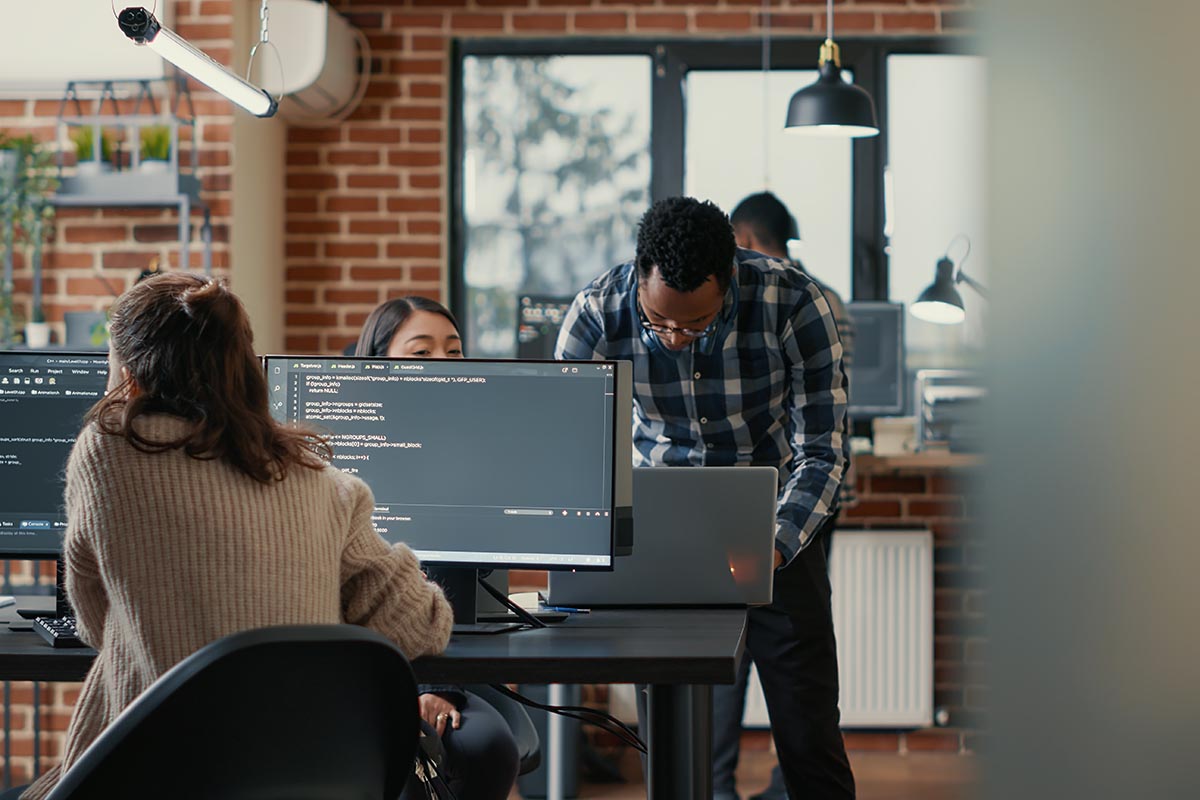Impact of Digital Technologies on the Industry of the Future
According to Markets and Markets, the digital transformation market size is projected to grow at a compound annual growth rate of 19.1% in the next five years, from $521.5 billion in 2021 to $127.5 billion in 2026.
Digitally transformed organizations are expected to contribute nearly $53.3 trillion to the GDP by 2023. This digital transformation is being driven by a host of emerging technologies that could combine into a complete revamping of the whole production system and even how we imagine product design and distribution to work today.
For more information on how this digital transformation could impact your industry and business niche, please refer to IT Support Vancouver.
4 Major Impacts of the Digital Revolution on the Industrial World
Improved performance and flexibility
The use of digital technologies, connectivity, robotics, additive manufacturing, and virtual reality creates a cyber-physical environment that can be used to rethink the way assets and industrial processes work. Industries in the future will be an industry in the era of the digital revolution and will be capable of producing more smartly, efficiently, quickly, safely, cleanly, and with fewer random events due to their automated nature.
The objective is to have full control over production systems while creating “zero stock” and drastically reducing costs generated by unsold items due to on-demand production.
Increased productivity
Collaborative robots (robots) will increase workers’ productivity and improve their safety. For example, using an exoskeleton with articulated arms will allow aviation workers to carry out heavy or voluminous tasks without damaging their backs or having to go back and forth on bridges or ladders.
- Cobots improve workplace safety
Cobots have several built-in safety features that allow them to work alongside humans safely and efficiently. Cobots can detect when a human is in their way or if an object is blocking their path, and stop immediately so as not to cause harm. Cobots are designed to work with humans, unlike traditional robots, which require extensive training for workers to operate safely.
- Cobots reduce the risks of humans suffering repetitive strain injuries (RSI)
Cobots can increase productivity and improve the safety of workers. They can work faster than humans in more dangerous environments, in more challenging positions, for longer periods, and in more difficult environments like wet or dusty locations. This helps human workers avoid situations that can harm their mental or physical health.
- Ease of programming
Collaborative robots are easier to program than traditional industrial robots. Cobots can be programmed by anyone, including people who don’t have a background in computer science or robotics. The programming is simpler and more intuitive than traditional programming for industrial robots, which requires knowledge of software languages like C++ or Python.
- More flexible
Cobots can be repurposed for different tasks. Unlike traditional industrial robots, which are designed to perform one specific job and then have to be sent back to the manufacturer for a software update, cobots can change the way they function simply by changing the software or reorienting them with respect to their environment. This flexibility means that cobots may not need as much maintenance as their fixed counterparts.
- Cost-effective
Cobots are less expensive than traditional industrial robots. Cobots can be easily integrated into existing manufacturing environments with minimal investment, lowering their ownership cost. They also require a lower level of technical expertise to deploy, so your employees won’t need extensive training before using them in their workflows.
Impact of Digital Technologies: A Massive Reorganization of the Supply Chain
Traditionally, manufacturing a good at a low cost has meant having to relocate specific factories to achieve many parts at less expense. Additive manufacturing does not have the same problem: it is profitable even if it only produces a few parts.
This capability has brought about a paradigm shift: the emergence of local micro-factories. 3D printing allows them to maintain and repair all industrial goods locally. And therefore, if you need a part for your car, it can be produced directly in the garage closest to you rather than being ordered from the factory.
Mass customization
The future industry will be based on mass customization, where production responds to demand, virtual reality makes it possible to push the limits of the imagination, and businesses can leverage agile technology to ensure responsiveness in a rapidly-evolving marketplace. Mass customization is a business model that allows businesses to create unique products for their customers at scale.
In the past, mass production was used by companies such as Ford and Toyota to produce standardized products in large quantities. However, this meant there was little flexibility in offering personalized customer experiences. Mass customization is a way for businesses to offer personalized customer experiences at scale without compromising on efficiency or quality.
It allows companies to create unique versions of their products with respect to size, color, material, and other factors while maintaining high efficiency and quality control throughout the production process. In terms of mass customization, customer engagement is essential because it helps you understand your market better and allows you to tailor your offering accordingly.
Digital transformation is not a straightforward journey from Point A to Point B. It is filled with exciting new developments and strange new turns in the journey. To succeed in such an environment, businesses must identify the right technologies and ensure commitment from operators and supervisors.
This revolution will take at least a decade to realize its potential. Managed IT Services Vancouver excels at providing strategic guidance to local businesses excited to embark upon their own journeys of digital transformation.
Post courtesy: Andrew Dalman, President at ActiveCo Technology Management




















